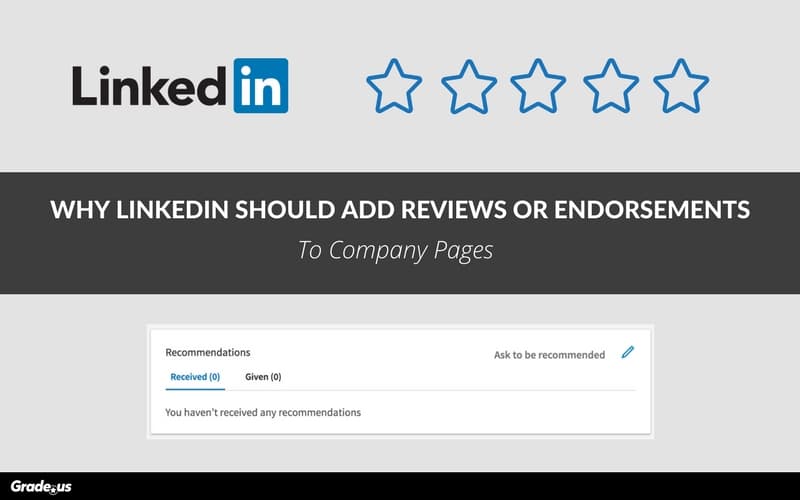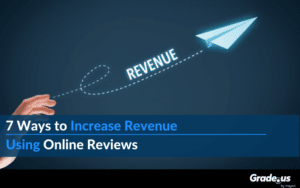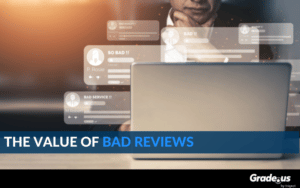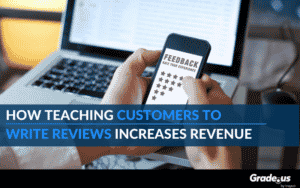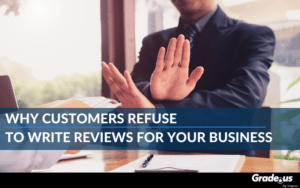LinkedIn has a big problem.
Recommendations. Not just recommendations, but business recommendations.
These are typically a helpful way to vouch for a particular person. But it isn't all that helpful on LinkedIn when it comes to companies, is it? If you're like most people, you read these recommendations with a great degree of skepticism.
Why is that?
LinkedIn recommendations aren't trustworthy
Wait just a minute.
Am I saying the recommendations you gave are untrustworthy? Of course not. It's not like I've reviewed every single review on LinkedIn to know for sure. I certainly don't know everyone on LinkedIn.
If I don't know the intentions of everyone on LinkedIn and I haven't personally reviewed every single case, how can I say something like that? I'll answer the unspoken question with another question.
Have you ever seen a negative LinkedIn recommendation?
The kind where a manager writes a scathing review about their direct reports and their screw-ups or vice-versa? I haven't seen any of these and I'm going to go ahead and guess you haven't either.
Because LinkedIn recommendations are flattery.
Forrester alum, Jeremiah Owyang states he won't give LinkedIn recommendations, describing them as puffery.
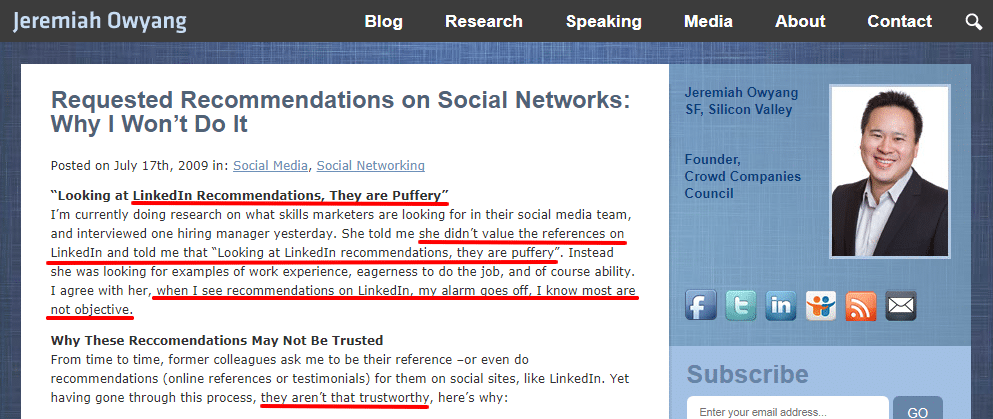
Others look for ways to politely (and quietly) decline requests. This seems to be a systemic problem, one that LinkedIn doesn't seem to have much interest in fixing at this point.
Reviews and endorsements can save LinkedIn recommendations
That seems like a stretch.
How can reviews and endorsements on company pages help restore LinkedIn's credibility? Reviews would provide people with something that's been missing on LinkedIn for some time.
Safety.
Criticize your client, manager or boss and you'll be fired. Share a negative experience about the wrong person and you'll experience a loss of opportunity and access.
How do we know?
Talia Jane. She's the Yelp employee who decided to criticize her boss. She posted an open letter to the CEO of Yelp and was promptly fired. Of course Yelp stated that her open letter wasn't the reason she was fired. Still, would you be surprised if a co-worker did this and lost their job?
See what I mean about safety? This is why the epidemic of sticky sweet recommendations will continue.
There is a solution.
Adding reviews and endorsements to company pages. These two features would change the landscape of LinkedIn completely. A review posted on a company page would have a larger impact than one posted on sites like Yelp or Facebook.
Why?
Everyone is there.
Most of the time there's distance between reviews and employees at a company. Customer support employees will probably see the negative reviews that come in, but what about the other departments? Sales and marketing? Accounting? HR?
Here's why company reviews and endorsements would have a bigger impact on LinkedIn.
· The performance/pay connection. Employees would see a direct connection between their on-the-job performance and customer satisfaction. A customer service snafu that results in a loss of jobs or incentives would be more meaningful. Used well, this would improve customer service in a wide variety of industries.
· Customer closeness. Organizations could choose to be transparent, sharing details on company performance. Customers following a particular company would be able to see the day-to-day operations. High performing companies would continue to grow, while poor performers continue to struggle.
· Easy reference requests. B2B companies are forced to deal with an unpleasant reality. Requests for references. Sure, many clients are willing to do this once or twice. Most clients aren't eager to field calls from a never-ending stream of prospects looking to verify references. A pinned review or specific endorsement from a B2B client would be a no-hassle way to vet companies.
· Open conversation. Picture this. You receive a negative review from an client. You're able to have a candid but respectful conversation with your client about what went wrong. It's embarrassing for sure, but you're able to resolve an unpleasant situation. Your client updates their review, giving you top marks. All while potential prospects watch. It's frightening but it's a surefire way to win clients.
There are lots of B2C review sites - Yelp, Google, Facebook, Waze, etc. There are also lots of specialty sites that focus on niche industries (e.g. TripAdvisor).
LinkedIn has the chance to solve a unique problem. There aren’t very many B2B review sites. Certainly none with the clout, impact and reach LinkedIn has.
A focus on B2B reviews would give LinkedIn the uniqueness and new market appeal they need. But it would also create new revenue streams. This has the potential to make a tremendous impact on B2B companies.
Negative reviews could have a tremendous impact as well
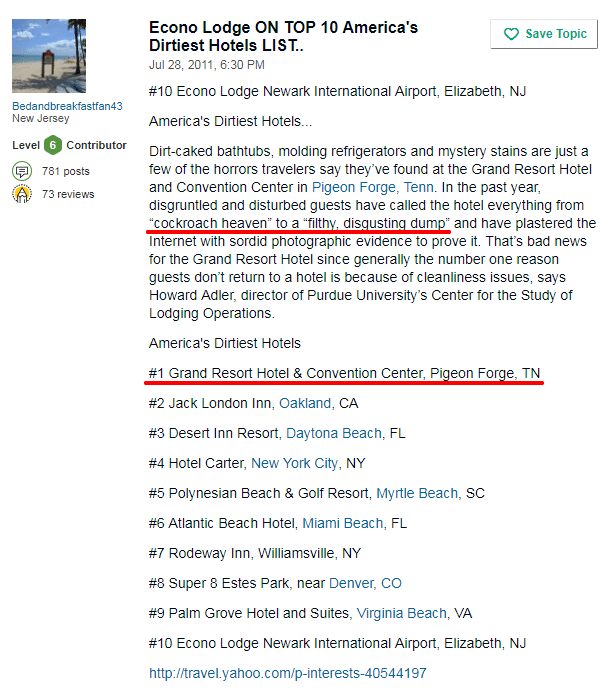
Customer traffic shrank to nothing and their business eventually closed.
Reviewers continued to post negative reviews and businesses continued to sue. Then in 2016, The Consumer Review Fairness Act was signed into law, giving consumers the legal protection they needed to share their reviews safely.
Here's the problem.
The law applies to individuals, it's not entirely clear if individuals acting on behalf of businesses would be covered.
That said, the benefit still outweigh the risks. Why?
Professionalism.
There's an expectation of professionalism on LinkedIn. If you're an active user you've probably seen it. Someone makes a personal or inappropriate comment. The community immediately jumps on them stating "that doesn't belong on LinkedIn." There are rules for everything including which profile pictures are acceptable.
Most people are civil.
Not because they want to be but because they have to be. Because LinkedIn is a two-edged sword. Misbehave, treat other people poorly, and it hurts your business and your career. LinkedIn is filled with the world's most powerful influencers, connectors and power brokers.
A wrong move on this social network could have severe consequences.
LinkedIn is dangerous. That's a very good thing
The influencer that brags about your business can also bury it. A positive review can trigger exponential growth. But, it can also lead to the end of your business and your career.
Danger promotes respect.
LinkedIn would need to tread carefully too. Which is why reviews and endorsements on company pages is perfect. It's a great way for B2B prospects to gauge the focus and skill sets of a particular company. It's also a great way to determine the values and character of an organization.
Customers use reviews to determine trustworthiness. Businesses win more customers, reviews and sales. LinkedIn continues to grow as a platform.
It's a win all around.
Here's another problem to deal with.
Individuals wouldn't use LinkedIn reviews
Individuals may feel comfortable sharing reviews but their employers won't. It's a liability problem.
Company A has an employee. That employee writes a negative review about company B. Company B loses business, files a lawsuit in response. Both companies fight it out in court. Legal issues a ban on writing reviews. It's the implicit fear lurking behind the scenes.
But, that scenario's overblown.
While it isn't impossible, it is pretty unlikely. Remember how I mentioned professionalism earlier? A lack of professionalism comes with consequences. Those consequences operate on a continuum.
1. A slap on the wrist. An unprofessional comment receives criticism and scorn.
2. Loss of opportunity. Consistent misbehavior results in a loss of opportunities. Recruiters stop calling, A player employees stop applying, customers stop calling.
3. Black listed. Offenders find their reputation precedes them. Calls aren't returned, messages are ignored and deals are lost.
4. Hostile takeovers. Competitors begin poaching customers. They discuss the offender's reputation with prospects, suppliers and industry pros.
It's mutually assured destruction.
There may be some misbehavior in the beginning but the community would quickly self-regulate. The same way they regulate unprofessional behavior now.
Reviews and endorsements can counteract recommendations
Most LinkedIn users don't trust recommendations.
But, it's not about positive recommendations. It's about the absence of negative recommendations altogether. It's the contacts who've never met you but still request a recommendation. It's the sticky sweet flattery baked into every recommendation.
They're unconvincing.
Reviews and endorsements can restore credibility and truth telling. 3rd party reviews, endorsements from an unbiased source - these lead to truth telling naturally. Because unspoken values of the community encourages and polices behavior. It's a simple problem to fix, but first things first.
LinkedIn has to admit it has problem.
About the Author
Andrew McDermott
Andrew McDermott is the co-founder of HooktoWin. He shows entrepreneurs how to attract and win new customers.

